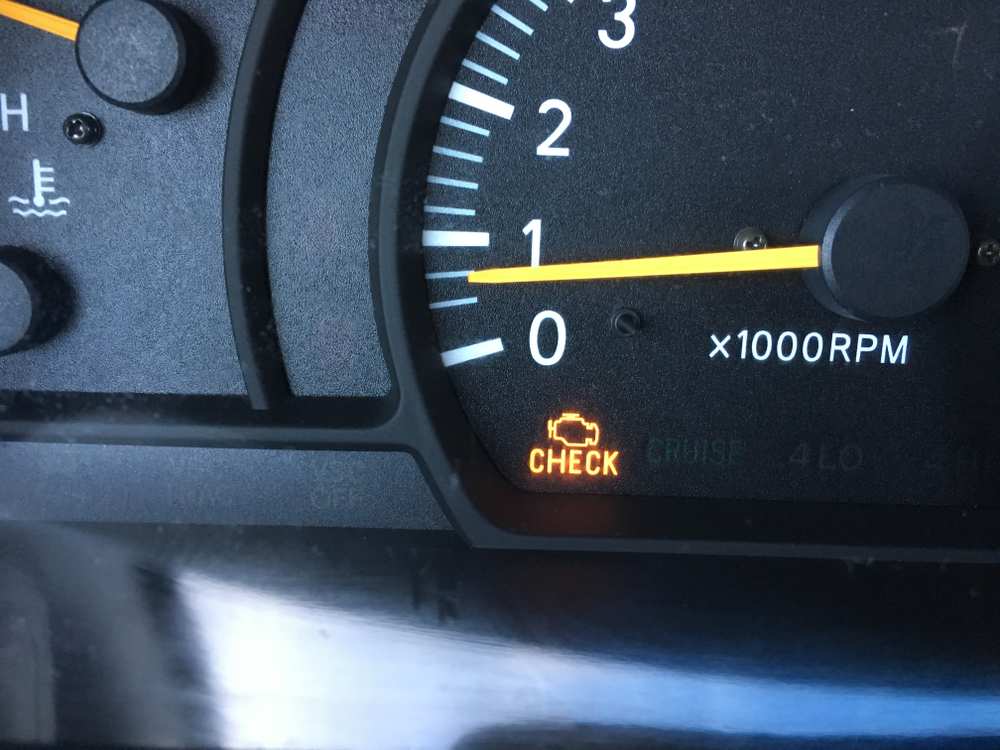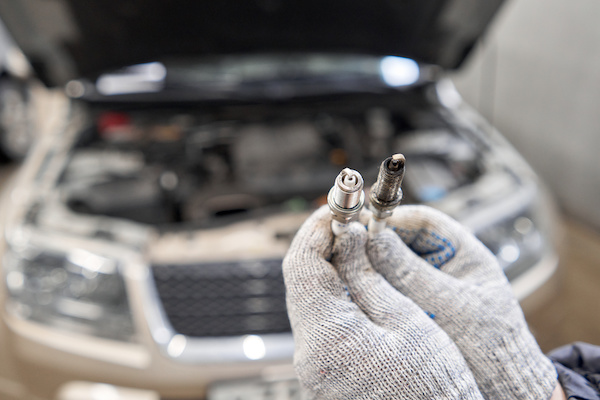Have you ever been driving and suddenly noticed that ominous glow of the check engine light on your dashboard? It’s enough to make your heart skip a beat.
You might find yourself wondering: Is it something minor, or am I looking at a hefty repair bill? Many drivers ask if spark plugs could be the culprit behind this unsettling signal. The truth is, your spark plugs play a crucial role in your car’s performance.
If they’re not working properly, the check engine light might indeed come on. But how can you be sure? You’ll discover how spark plugs can affect your vehicle and what you need to do if they are the reason behind that light. Keep reading, because understanding this could save you from unnecessary stress and expenses. Your car’s health and your peace of mind are at stake!

Credit: www.youtube.com
Causes Of Check Engine Light
The check engine light is one of the most dreaded sights for any car owner. It’s like a vague warning with no specifics. You know something’s wrong, but what exactly? This dashboard alert can signal a range of issues, from minor glitches to major mechanical problems. Understanding the causes behind this light can save you time and money. Let’s explore some common triggers and the specific role spark plugs play in this scenario.
Common Triggers
One of the most common reasons your check engine light might come on is due to a loose or damaged gas cap. It seems trivial, but a bad seal can affect your car’s fuel system. So next time you fill up, make sure that cap is tightly secured.
Oxygen sensors also commonly trigger the check engine light. They monitor the amount of unburned oxygen in your car’s exhaust. If they fail, it can affect your car’s fuel efficiency. Replacing a faulty sensor could save you from guzzling more gas than necessary.
Mass airflow sensors are another frequent culprit. These sensors tell your car’s computer how much air is entering the engine. A malfunction can lead to poor performance and increased emissions.
Role Of Spark Plugs
Now, what about spark plugs? These small components play a big role in your car’s engine. They ignite the air/fuel mixture, enabling your engine to produce power. When spark plugs wear out, they can cause your engine to misfire, which might trigger the check engine light.
Imagine driving down the road and feeling a sudden jolt. It happened to me once, and my heart skipped a beat. The check engine light blinked on, and it turned out to be old spark plugs. Replacing them not only solved the issue but also improved my car’s performance.
But when should you replace them? Typically, every 30,000 to 100,000 miles, depending on your vehicle. Ignoring them could lead to more than just a warning light—it could result in costly engine repairs.
So, what should you do if your check engine light comes on? Don’t ignore it. Check your gas cap first. Then, consider other common triggers. And remember, those spark plugs, though small, might be calling for your attention. Could they be the overlooked hero in your vehicle’s performance?

Credit: www.gregs.com
Spark Plugs And Engine Performance
Spark plugs play a key role in engine performance. They ignite the air-fuel mix in the engine. This ignition process powers your vehicle. Without healthy spark plugs, the engine struggles. Problems can arise, affecting performance and efficiency. Understanding the role of spark plugs helps in maintaining your car.
Importance Of Spark Plugs
Spark plugs are crucial for efficient engine operation. They ensure smooth combustion inside the engine. A single faulty spark plug can disrupt this balance. When all spark plugs work well, your car runs smoothly. This results in better fuel efficiency and reduced emissions. Regular checks can prevent issues and maintain optimal performance.
Signs Of Faulty Spark Plugs
Faulty spark plugs can cause several issues. The engine might misfire during acceleration. You may notice a rough idle when the car is stationary. Reduced fuel efficiency can also be a sign. Sometimes, the check engine light may turn on. This is often a sign of spark plug issues. Addressing these signs early can prevent bigger problems.
Diagnosing Spark Plug Issues
Diagnosing spark plug issues might seem daunting, but it’s actually a straightforward process that can save you time and money. If you’ve ever experienced your car sputtering or noticed a decrease in fuel efficiency, spark plugs might be the culprit. Understanding how to diagnose these issues effectively can prevent minor problems from escalating into costly repairs. Imagine you’re driving down the highway, and suddenly the check engine light flickers on; it could be a simple spark plug issue you can tackle yourself.
Tools Needed
Before diving into the diagnosis, make sure you have the right tools at hand. You’ll need:
- A spark plug socket
- A ratchet
- Torque wrench
- A gap gauge
- A multimeter
These tools are essential for inspecting and testing spark plugs. A multimeter is especially helpful in checking the resistance of your spark plugs, ensuring they are functioning correctly.
Steps To Diagnose
Start by locating your vehicle’s spark plugs. They’re usually found on top of the engine. You might need to remove a few engine covers or components to access them.
Once located, carefully remove each spark plug using the spark plug socket and ratchet. Pay attention to the condition of the spark plugs. Are they covered in soot, oil, or burnt deposits? These signs can indicate various engine issues.
Next, use the gap gauge to check the gap between the electrodes on each spark plug. A misaligned gap can lead to inefficient combustion. Adjust the gap if necessary, following the manufacturer’s specifications.
Finally, test the resistance using a multimeter. A healthy spark plug typically has a resistance of 4,000 to 10,000 ohms. Anything outside this range might suggest wear or damage.
As you diagnose, ask yourself: Could these symptoms be affecting my vehicle’s performance? Knowing how to identify spark plug issues empowers you to maintain your car’s health and performance.
Effects Of Bad Spark Plugs
Bad spark plugs can lead to a host of issues that might trigger the check engine light. These small components play a big role in your vehicle’s performance. Ignoring them can result in problems that affect your car’s efficiency and longevity. Let’s delve into the specific effects of worn-out spark plugs.
Impact On Fuel Economy
Bad spark plugs can cause your engine to misfire, leading to inefficient fuel combustion. When this happens, your car consumes more fuel than necessary. You may notice frequent trips to the gas station without additional mileage.
Imagine planning a road trip, only to find your car guzzling gas more than expected. It’s frustrating and costly. Regularly checking and replacing spark plugs can save you money and maintain optimal fuel efficiency.
Potential Engine Damage
Neglecting spark plugs can lead to severe engine damage over time. Misfires can increase the load on other engine components, causing them to wear out faster. This can result in costly repairs or even engine replacement.
Have you ever felt your car vibrating unusually or heard knocking sounds from the engine? These could be signs of spark plug issues. Addressing them promptly can prevent further damage and ensure your vehicle’s longevity.
Maintaining your spark plugs isn’t just about avoiding check engine lights. It’s about preserving your car’s performance and your wallet. How often do you check your spark plugs? It’s worth considering for smoother rides and fewer repair bills. Remember, proactive maintenance can save you from unexpected hassles down the road.
Resolving Spark Plug Problems
Spark plugs play a crucial role in your vehicle’s performance. Worn-out spark plugs can trigger the check engine light. Resolving these issues promptly is essential for a smooth ride. Understanding how to address spark plug problems can save you time and money.
Replacement Guidelines
Replace spark plugs every 30,000 miles or as your manual suggests. Always use the correct type for your vehicle. Consult your vehicle’s manual or a trusted mechanic for advice. Proper tools are essential for a safe replacement. Ensure a secure fit to avoid future issues.
Preventive Measures
Regular maintenance prevents spark plug issues. Schedule routine engine checks to catch problems early. Keep an eye on fuel consumption and engine performance. These can indicate spark plug wear. Use quality fuel to extend spark plug life. Avoid harsh driving to minimize wear.

Credit: www.davesautomotivepa.com
When To Seek Professional Help
Car troubles can be confusing. The check engine light is a common issue. It often signals problems with spark plugs. Ignoring it can lead to bigger problems. Knowing when to consult a mechanic is key. This can save time and money.
Warning Signs
Is your car misfiring? This could be a spark plug issue. Poor acceleration is another red flag. Experiencing rough idling? This is often linked to spark plugs. Engine hesitation is a strong indicator. Unusual engine noises might point to faulty plugs. Notice a decrease in fuel efficiency? Time to check those spark plugs.
Choosing A Mechanic
Find a trusted mechanic for spark plug issues. Check online reviews to gauge reliability. Ask friends for recommendations. Choose a mechanic with spark plug expertise. Look for certifications and experience. Compare quotes from different shops. Ensure the mechanic uses quality parts. Good mechanics explain repairs clearly. A friendly service can make a difference.
Conclusion
The check engine light can indicate spark plug issues. Regular maintenance helps prevent problems. New spark plugs improve engine performance. Ignoring the light may lead to costly repairs. Always address the check engine light promptly. It ensures safety and efficiency.
Consult a mechanic if unsure about the light’s cause. Proper care extends your vehicle’s life. Investing in quality spark plugs is wise. They provide smoother rides and better fuel efficiency. Stay alert and responsive to your car’s signals. Your vehicle will thank you.
